Summer freshness with George Sand
Those who could afford it left Paris when it got hot and stuffy. The most famous French writer of the 19th century gathered the crème de la crème of the cultural scene of the time at her country residence in Nohant.
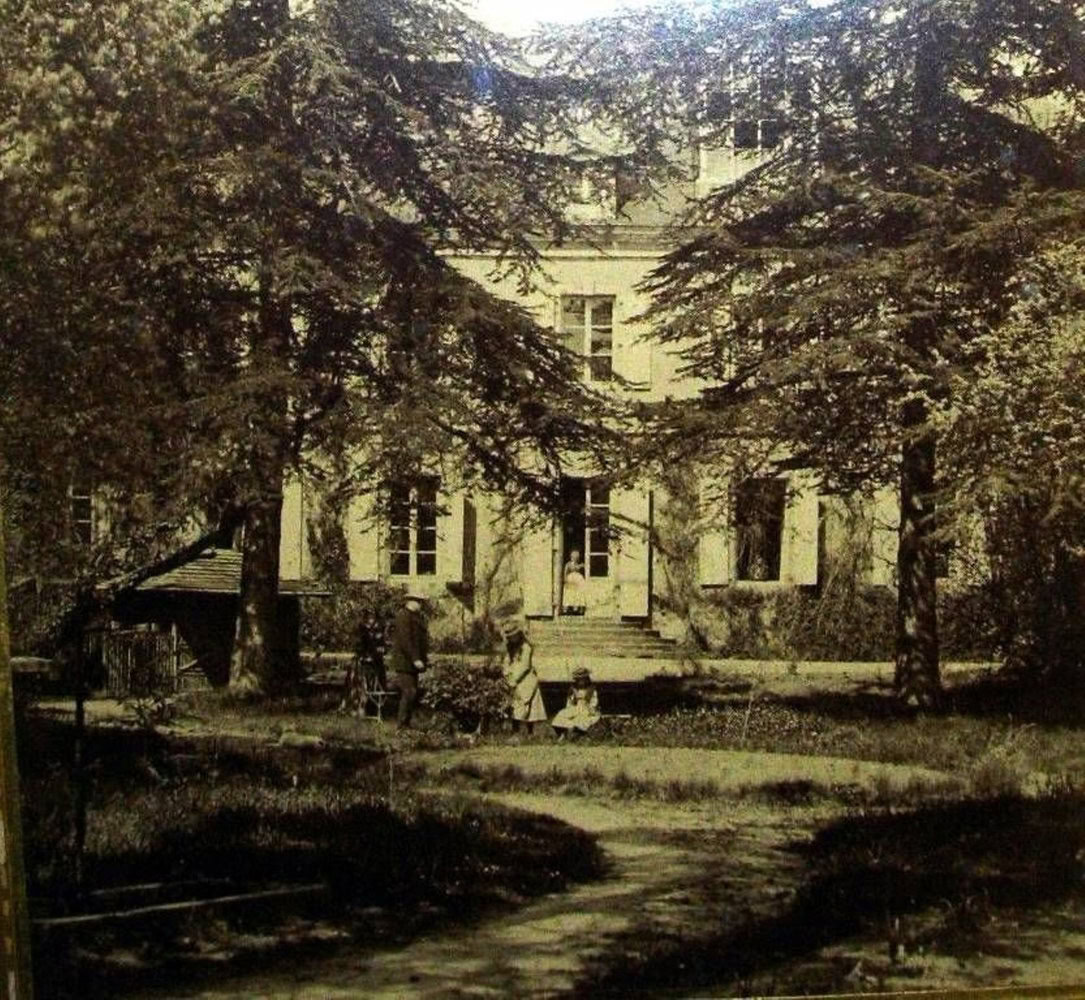
The landscape is perfectly flat around the hamlet of Nohant-Vic in the province of Berry in the heart of France. The proud manor house of the Dupin family stands there. Marie-Aurore de Saxe, grandmother of George Sand alias Aurore Dudevant, once bought it together with its farm, stables, small church and five-hectare park.1
Behind the house is a small wood with winding paths and an enchanted pond, a spacious garden with flower beds and a family cemetery. George Sand spent most of her life here. And some of the most important cultural figures of the time came and went here. Far from the hustle and bustle and dirt of the capital, they worked in peace and in inspiring company on groundbreaking plays, novels, compositions and paintings.
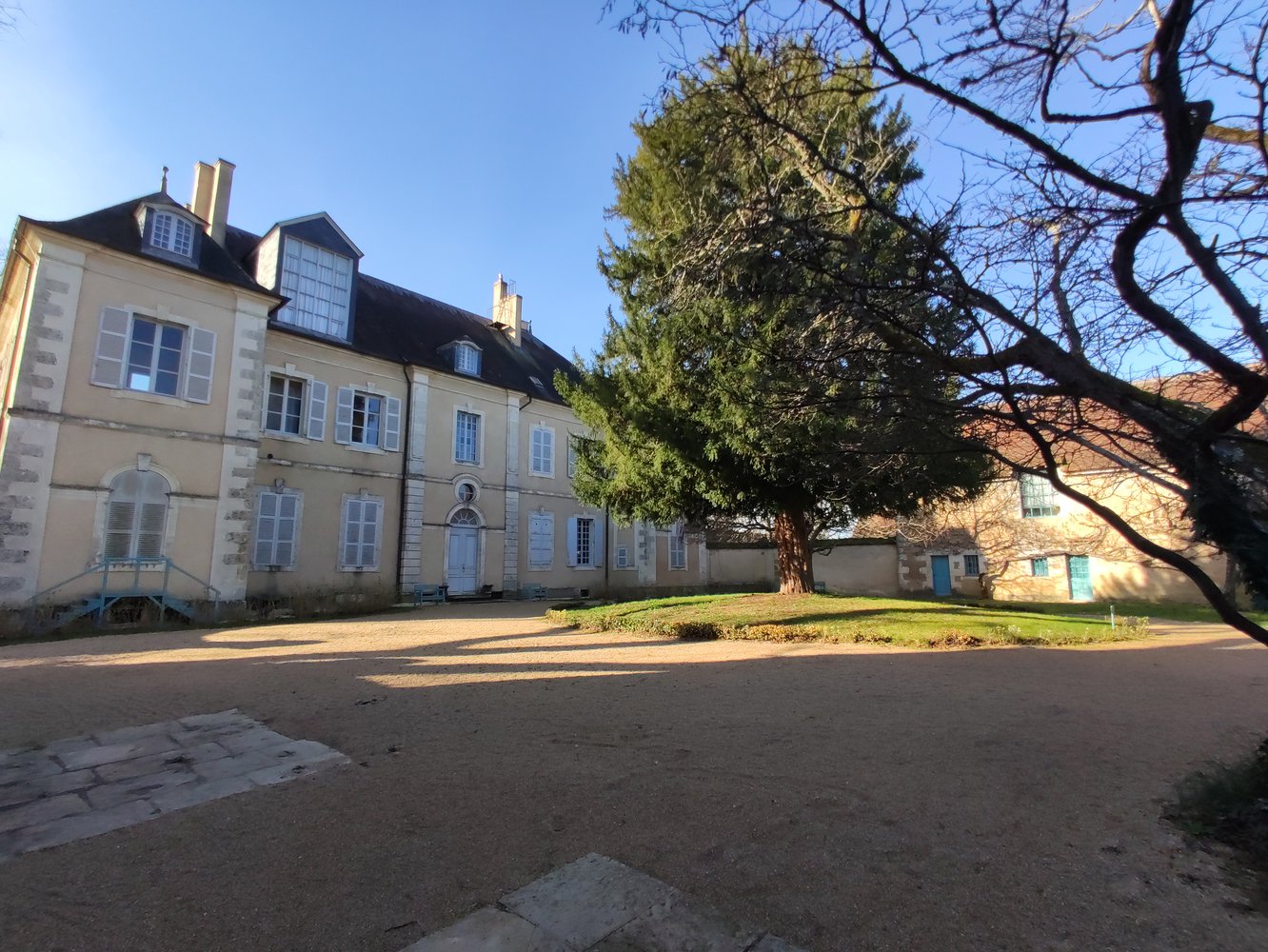
At the beginning of 1838, the poet Honoré de Balzac was inspired by this atmosphere. The rural life, which the bustling George Sand preferred, inspired creativity. But Nohant can also become boring in the long run, so music is needed. The lady of the house loves piano music. She plays the instrument herself, but there are no professionals in the house - preferably stars like Franz Liszt. "Quand Franz joue du piano, je suis soulagé [sic]. Toutes mes peines se poétisent, tous mes instincts s'exaltent. Il fait surtout vibrer la corde généreuse" (When Franz plays the piano, I am relieved. All my agonies are transfigured, all my instincts go into raptures. Above all, he makes the generous string vibrate).she wrote in her Journal intime on June 3, 1837, when Liszt and his lover Marie d'Agoult were visiting Nohant for months.
However, the Polish composer Frédéric Chopin and his intimate friend Wojciech Grzymała - who had long known Sand from the Parisian salons - did not yet respond to her urgent invitations. Meanwhile, Sand is visited by one past, one present and one future lover; they too are artists: Charles Didier, a Swiss journalist and writer, Bocage (Pierre-Martinien Tousez), a French actor, and Félicien Mallefille, a French writer born in Mauritius.2
Chopin's musical fragments over the garden
It was not until two years later that Chopin was able to enjoy a summer retreat in Nohant. After Sand, who was divorced and had been a single mother for years, invited him on a rainy winter trip to Mallorca, which had become famous, and his health had deteriorated dangerously, the little group (Sand's children and maid were with them) arrived at the country estate in June 1839. Chopin soon becomes bored. He missed his extravagant life in Paris, his friends and wandering through the salons late into the night. He implores Grzymała to visit him. Sand is also pleased to see him. She has long been on first-name terms with this co-founder of the Polish Parisian literary society and calls him "mon époux" - while she and Chopin always correspond with the formal "you".
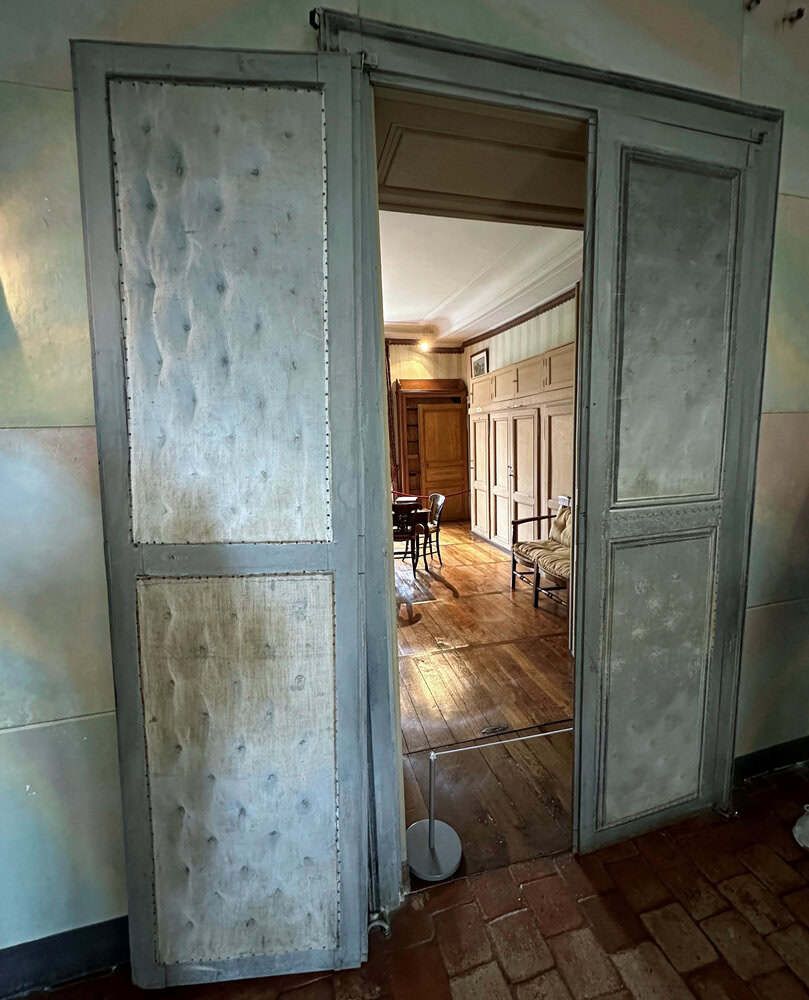
She ordered a Pleyel grand piano for her "malade" so that he could work and play undisturbed. The doors to his study, padded for soundproofing, are still in place today. In Paris, Chopin's main occupation was teaching. mój młynhis "mill", as he somewhat cynically called it. For seven summers (1839, 1841-1846), Chopin was able to compose in peace in Nohant for months on end, and at a reasonable price - he himself could hardly afford such a feudal and extensive summer retreat, including good food.
He perfectionistically polishes his new works. "Il s'enfermait dans sa chambre des journées entières, pleurant, marchant, brisant ses plumes, répétant et changeant cent fois une mesure [...] avec une persévérance minutieuse et désespérée. He spent six semaines on one page to return to it as he had done with the first jet." (He locked himself in his room for days, crying, walking around, repeating and changing a bar a hundred times [...] with a painstaking, desperate persistence. He worked on a page for six weeks before finally returning to it as he had written it down in the first draft).3
Sands "hôte" (as she calls him in Histoire de ma vie) composes during the day, she writes at night and sleeps half the day. This "compagnonnage"4 The two of them get along well, but still go for walks together while riding a donkey.
Chopin remained in contact with his beloved friends in Paris by letter. He sent his trusted intimate Julian Fontana, for example, publishing commissions and more: "Écris-moi continuellement, trois fois par jour si tu le veux [...] Que mon chapeau soit prêt dans quelques jours. Commande immédiatement mes pantalons, ma petite Juliette [sic]." (Write to me all the time, three times a day, if you want [...] Whether my hat will be ready in a few days. Order my trousers at once, my little Juliette [sic]. 3.10.1839)
Chopin's family in Warsaw also received mail from Nohant. And also his old love in Poland, the musical farmer Tytus: "Woyciechowski vient de me conseiller d'écrire un Oratorio." (Woyciechowski recommended that I write an oratorio. 8.8.1839) Chopin never puts an oratorio on paper, as he immediately makes clear to his Tytus. During these summers, however, he completed one piano masterpiece after another: the eerie finale of the B flat minor Sonata, the B minor Sonata, the Ballade in F minor, the "heroic" A flat major Polonaise, the light and airy E major Scherzo with its yearning middle section and many more.
While Chopin composes, Sands teaches his daughter Solange and fills the entire house with his playing in the evenings, the "lady of the house" (as he calls her) constantly invites other cultural figures from her large family of artists to the Berry. For example, the painter Eugène Delacroix. He was also very close to Chopin and wrote: "Il arrive de la fenêtre ouverte sur le jardin des bouffées de la musique de Chopin qui travaille de son côté: cela se mêle au chant du rossignol et à l'odeur des roses." (Scraps of music by Chopin, who is also at work, waft from the window open to the garden: they mingle with the song of the nightingale and the scent of roses. 7.6.1842)
This eternal bachelor teaches Maurice, Sands' talented son. A studio is also set up for him, he is allowed to sleep in his grandmother's beautiful room on the first floor and spends a lot of time together with Chopin. "Jʼai des tête-à-tête à perte de vue avec Chopin, que jʼaime beaucoup, et qui est un homme dʼune distinction rare; cʼest le plus vrai artiste que jʼaie rencontré." (I spend an infinite amount of time together with Chopin, whom I like very much. He is a man of rare nobility and the truest artist I have ever met. 22.6.1842)
After the soundscape comes the theater
The generous George Sand, who liked to wear men's clothes and smoke cigars, was an avant-garde author for her time as far as her themes were concerned. Gender identity can be fluid (Gabrieldedicated to Grzymała), and her heroines are self-determined (Lélia). In her private life, the novelist is attracted to both women and men; she is bisexual.5
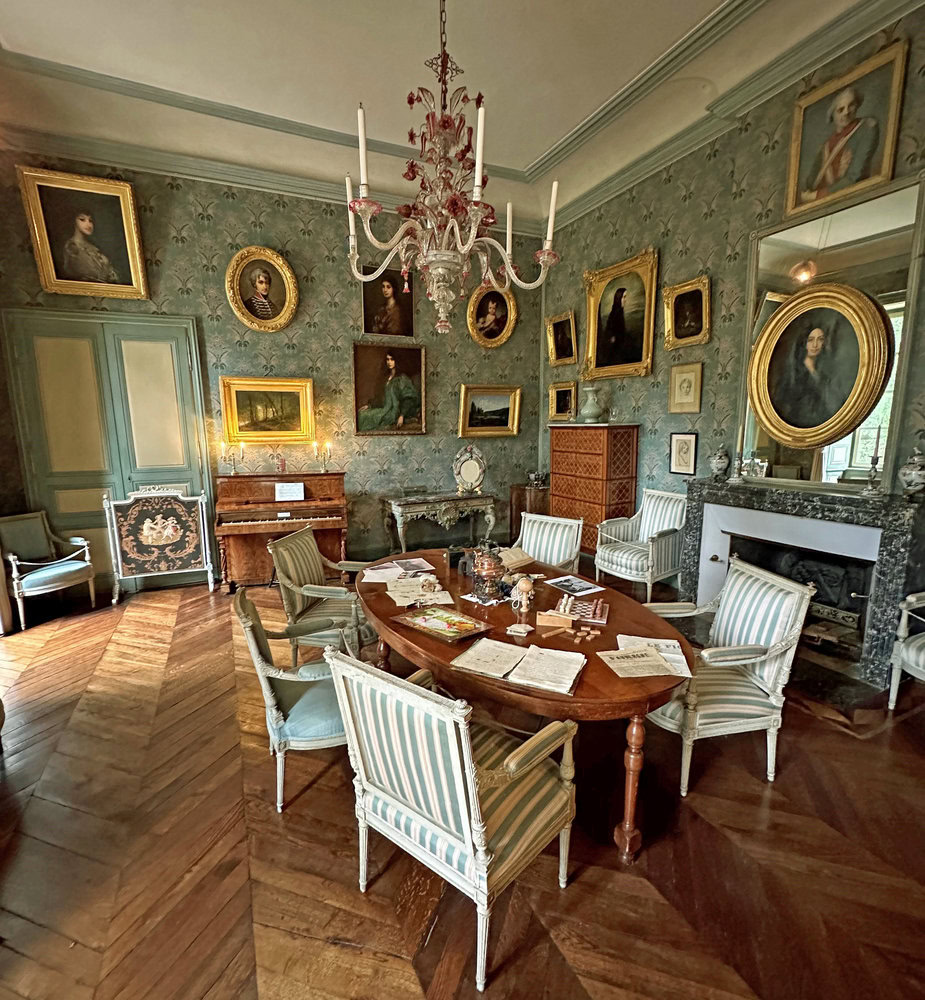
The singer and composer Pauline Viardot is a permanent guest in Nohant, sometimes with her family. Sand had maternal feelings for her, as well as for Chopin, contrary to popular opinion and as she herself always emphasized: "mon fils". Passion plays no role in this partnership of convenience over the years.6 "Ma fille" Viardot makes music and improvises with him - musical magic moments at the Berry.
Selected friends of Chopin come to visit, such as the poet Stefan Witwicki and Grzymała a second time. At times, rooms became scarce because of all the guests, servants and domestic staff. "Le domestique de Chopin [...] est un polonais grave et stupide [...] On pourra le mettre à côté de la sellerie." (Chopin's servant [...], a Pole, is serious and stupid. We could put him next to the tack room. 8.4.1843)
At the end of 1846, George Sand decided to stay in Nohant for the winter as well and - without informing Chopin - gave notice to leave her apartment in Paris. After a disagreement, she and Chopin parted ways for good, and things suddenly became very quiet in the magnificent country house. Sand tries to make music herself, but this is no substitute for the former soundscape. "Je suis forcée de me faire de la musique à moi-même, ce qui n'est pas gai du tout [...] cela donne me à moi, les seules jouissances musicales que je puisse avoir ici". (I'm forced to make music for myself, which is no fun at all [...] that gives me the only musical pleasures I can have here. 5.3.1849)
The engraver and author Alexandre Manceau, Sand's passionate love, who lived with her in Nohant for fifteen years from 1849,7 unfortunately does not bring music into the house. But the performing arts do: he directs the new, in-house small stage, sets up an additional puppet theater for Maurice, and the performances become events for the "Berrichons" from the surrounding area.
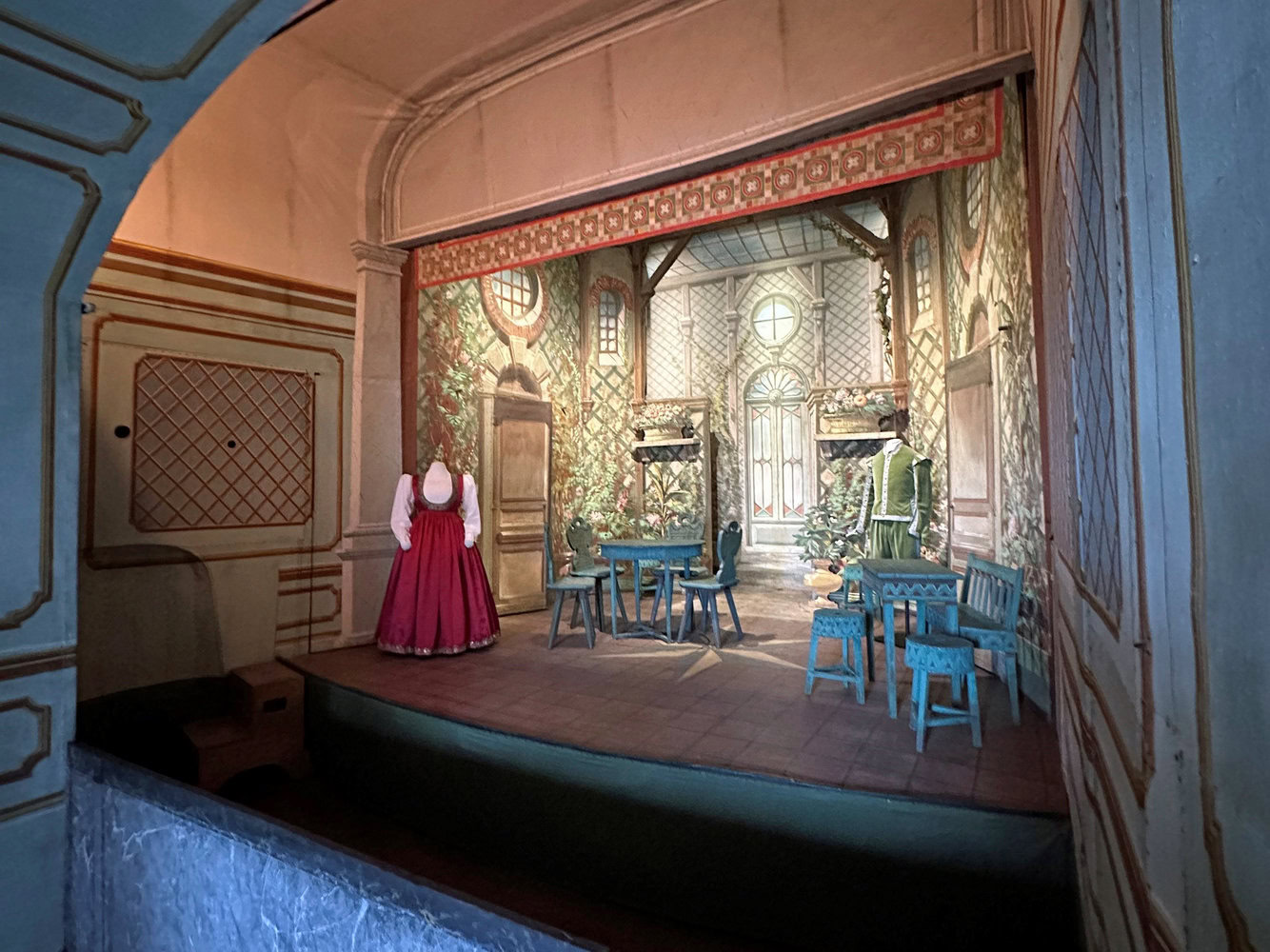
Moritz Weber is a pianist and music journalist and has been with SRF Kultur since 2012. His research, "Chopin's Men", attracted worldwide media attention in 2020.
Notes
1 Anne Muratori-Philip, La Maison de George Sand à Nohant, Paris: Éditions du patrimoine, Centre des monuments nationaux, 2012, p. 4
2 George Sand, Correspondance (Éd. Lubin), vol. IV, Paris: Classiques Garnier 1968 (reprint 2013), p. 5
3 George Sand, Histoire de ma vieTome XIII, Chapitre 7, Paris: [publisher not ascertainable], 1855, pp. 130f.
4 Martine Reid, George Sand, Paris: Gallimard, 2013, p. 158
5 Martine Reid, George Sand, Paris: Gallimard, 2013, p. 101f.
6 Armin Strohmeyer, George Sand - A biographyLeipzig: Reclam, 2004, p. 105
7 Armin Strohmeyer, George Sand - A biographyLeipzig: Reclam, 2004, pp. 165, 197








